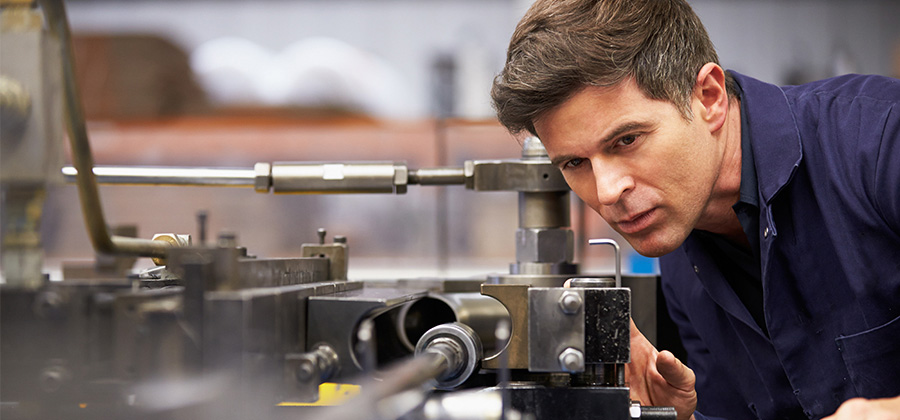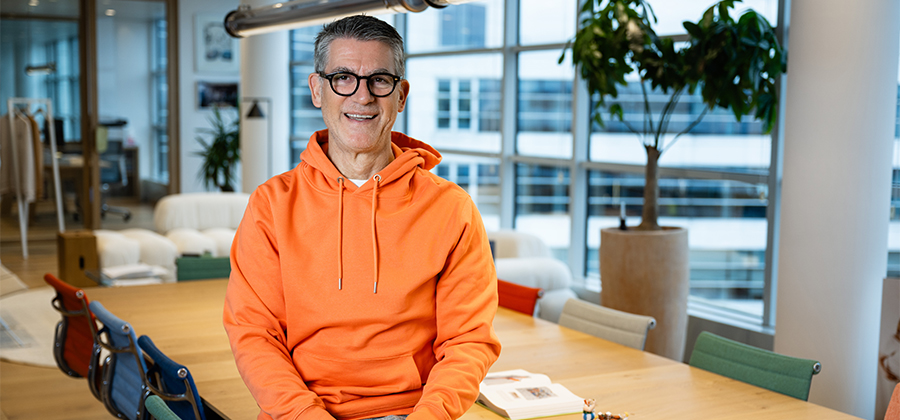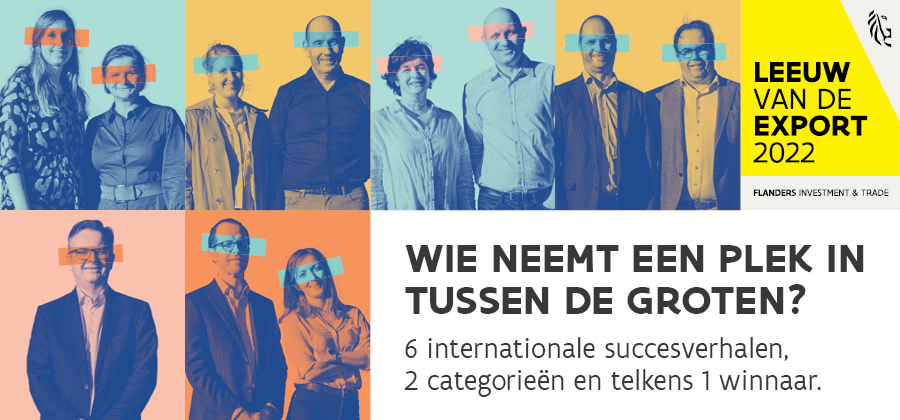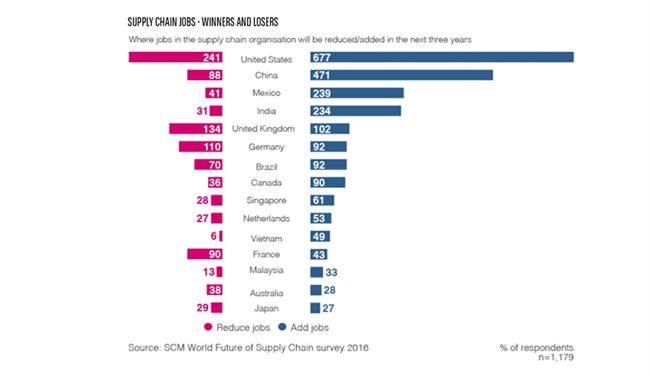Countries that have spent the 30 last years closing their factory doors are seeing an unexpected return to local industry. The short chain has maybe even taken on a certain value in an unstable economic climate.

From the start of 2016, international exchange volumes have been falling. For the first time since the Second World War, a commercial treaty with the United States has failed during a growth period. Both candidates in the American presidential elections recently opposed the Trans-Pacific Partnership in order to embrace "Made in the USA". The United Kingdom voted for Brexit. In Belgium, Wallonia went head-to-head with the European Union and Canada over the CETA. In other words: globalisation is no longer an unshakeable conviction.
A survey carried out by SCM World indicates that in the United States, companies are three times more likely to recruit (than dismiss) staff in the supply chain area. The trend is identical in European countries such as Germany, the Netherlands and even Great Britain, as the diagram below shows.
(Source: SCM World http://www.scmworld.com/wp-content/uploads/2016/11/161103-November-KOM_Image1-Web.png)
Made in China was synonymous with everyday low prices. The paradigm has shifted.
During the 90s, international exchanges grew twice as fast as the international economy. Europe united under a shared currency. China became the world's factory. Tariffs fell, as did transport costs. Nevertheless, if you believe the New York Times, the Walmart revolution was over. So China joined the former prosperous nations club: she used her factories to build a middle class. As for Europe, from now on economic stagnation makes the signing of trade exchanges more complex.
Conclusion: local is back and redesigning the supply network rules. Why?
Distance increases costs
It makes no sense to boast about container capacity and the fall in the price of oil. Transport costs from Asia to Europe are more expensive and riskier than before. Add to this the doubts surrounding trade regulations.
Local is more flexible
The example of Trellebord in Sweden is particularly enlightening. This SME chose to use robots in order to automate a part of its work in a high wage country without having to go through relocation.
For Kevin O'Marah, SCM World supply chain expert, "adaptable platform design is Western industry's best defence against devastating supply constraints." The more such vital inputs can be shared, the better the business can support local production with limited bill-of-materials risk. This is true for Mondelēz, which is pioneering this approach in food, or BMW in automotive."
09.12.2024
Managing business uncertainty with BNP Paribas Fortis
Every entrepreneur will tell you that financial markets are unpredictable, entailing inherent risks. We provide tailored solutions to protect your business as you navigate these volatile markets.
Whether you’re a small or large business, operating domestically or internationally, one thing is certain: if you enter a market and do your utmost to grow your business, sooner or later there inevitably will come a time when you expose yourself to risks. Frédéric Raxhon, Head of FI Midcap Sales, BNP Paribas Fortis Transaction Banking, is our go-to expert. Here, he explains how BNP Paribas Fortis helps customers manage this uncertainty.
Raxhon knows how market volatility can impact the daily operations of small, medium and large enterprises. Thanks to his experience of working as a banker in corporate finance, shares and derivatives, and advising holding and listed companies, he understands how the market works like no other.
Raxhon: "We are keenly aware that price uncertainty, in the form of volatility on the financial markets, can have a serious impact on the operations and profitability of businesses. That’s why we constantly monitor the markets and their volatility: if prices fluctuate sharply, our customers run the risk of buying high and selling low. The past few years are a good example of what can happen, with a sudden rise in interest rates, an energy crisis with very volatile prices, and a sharp rise in inflation. We will continue to see volatility in these markets, due to geopolitical tensions and ongoing wars. However, elections can also cause volatility, as they often cause a change in economic policy. President-elect Donald Trump has already said that he will hike tariffs on goods coming from outside the U.S., which will have an impact on global growth and inflation. The transition to a more sustainable society because of the energy transition, however positive this may be, is also a source of uncertainty. Companies will be required to make significant investments, and it is not yet clear which technologies will prevail.
All of these factors show that companies need guidance in the form of a tailor-made solution to ensure that volatile markets minimise the impact on their operations so that they can focus on their core business."
Solution-oriented
The solution to this volatility comes from a partner who is a market leader when it comes to safeguarding national and international business.
Raxhon: "At BNP Paribas Fortis, this often means managing the risks of companies that have a number of straightforward wishes: they want to conduct business on a daily basis without unnecessary complications; buy at a stable price where possible; pay wages in a stable environment; sell to customers with a profitable, stable margin, and so on. If they experience market uncertainty in their business operations, we are there to advise them and suggest solutions in different scenarios. This can range from companies that want stability when buying or selling goods in another currency, to controlling fluctuating interest rates on current or future loans, or even creating a stable financial environment in which they can steadily pay their wages. We also hedge raw materials: companies that require large quantities of energy, metal, or wheat, for example – just a few of the commodities that are subject to price fluctuations – can rely on our expertise to turn their uncertainty into certainty. When companies are calculating their budgets for the coming years at the end of the year, assumptions about budgets and costs are a factor that future markets do not take into account. This, in turn, could lead to inconsistencies in business operations during the next financial year. We regularly suggest solutions for this, which inject trust into the entire process. We help entrepreneurs make their business more resilient to market fluctuations. Because at BNP Paribas Fortis, we are always focused on finding solutions, in any given scenario."
International intelligence
Belgian companies are increasingly expanding their horizons, which is why an international perspective is so crucial.
Raxhon: "Everything is intricately connected in the economic space. The energy crisis, for example, was not a national crisis. In Belgium, electricity prices were directly impacted by the drop in nuclear power production in France in 2022. The American elections have a direct impact on international business, with anxiety gripping investors and the markets. And I can give you many more examples.
Moreover, we expect this interdependence and volatility to continue for quite some time: there are a large number of economic and global trends that are feeding this uncertainty. And that is why it is so important that we keep up with developments in this uncertain global environment. At BNP Paribas Fortis, we rely on a global network of experts who are always on the lookout for the latest updates. Whatever happens and wherever it happens, there are always people from our bank on the ground who monitor the situation and provide us with real-time advice on how best to inform our customers. This network has proven its worth time and again, both for us and our customers."
02.05.2024
“Our focus is on people and trust”
Can a fashion company be successful even if it forgoes the excesses of fast fashion? Definitely, as Jean Chabert proves with Stanley/Stella, which produces custom-made clothes from organic cotton.

“We want to be a game changer,” says Jean Chabert, CEO of Stanley/Stella. "When I was born 62 years ago, 2 billion people were living on our planet. Today there are 8 billion. That’s the reality, so we need to stop depleting resources. Human activities always have consequences, but we must constantly strive to improve. That’s our commitment, and we enshrined it in a charter in 2022. We monitor our entire ecosystem and focus on people and trust."
Clothing as a means of communication
The B2B company from Brussels sells clothing that serves as a means of communication. Stanley/Stella customers have T-shirts, sweatshirts and hoodies printed or embroidered and they offer these personalised items to their own customers. "We're in a giveaway industry, and our prices are at least 50 per cent above the average. But we offer superior quality and respect for people," says Chabert.
Organic cotton: half the water
15 of the 220 Stanley/Stella employees are directly or indirectly involved in Environmental, Social, Governance (ESG) activities. For example, they check that agreements on working conditions and safety at the production sites are respected. The company buys its organic cotton, produced without Genetically Modified Organisms (GMOs) or pesticides from India, Tanzania and Turkey - it uses 70 per cent less water than conventional cotton. Stanley/Stella has also made long-term commitments throughout the production chain to minimise any negative impacts on people and the environment. For example, 90 per cent of containers arrive at the warehouse in Germany by inland waterway, the least polluting form of transport.
Considering all the impacts
“Of course, we have to remain realistic,” Chabert adds. "Companies that want to be viable must also remain profitable. By definition, we use resources to make textiles. So, we consider all the impacts. For example, we continue to operate our textile decoration business in Europe, even if it's more expensive. Wastewater containing inks and dyes is treated and reused. At the moment, we can't avoid electricity being generated by gas in Bangladesh. We check how willing a country is to make progress in this area. And in the meantime, we offset what we can't avoid."
Trust and humanity
“Trust is at the heart of any good relationship,” says Chabert. "I used to have a cash flow problem. I relied on my own equity and for years, had no loans. I was the only shareholder for a long time. Eventually, I opened my capital to 40 per cent and applied for loans from BNP Paribas Fortis. Today, we know each other well, and I don't have to explain my company's limitations; they know the industry. They co-finance the stock, offer an invoicing solution, support our development in the United States thanks to their international network, and much more."
Today, it’s full steam ahead for Stanley/Stella. In 2023, turnover more than doubled to EUR 170 million. The company also hopes to enter Japan and South Korea soon. For Chabert, one thing is clear: "Our most important wealth is not on the balance sheet. It’s our people."
Stanley/Stella is ready to change the world. Discover more entrepreneurial stories.
We monitor our entire ecosystem, focusing on people and trust.
Our prices are at least 50 per cent higher than the average. But we offer superior quality and respect for people.
30.04.2024
Measurable corporate social responsibility
The Brussels-based scale-up Optimy brings together corporate volunteering, donations, patronage and sponsorship activities all on one platform. On it, their impact on society is concretely measurable.
"Originally, I didn't think of myself as a social entrepreneur, even though I was involved in sponsorship. At the request of our customers, my partners and I have developed an entire provision of services that has become the most comprehensive platform on the market," says Kenneth Bérard, CEO of Optimy.
One of these customers was the BNP Paribas Fortis Foundation, which wanted to make a greater social difference and also give these actions more visibility. "It's a must for companies to contribute to society. This generates added value for the company and fuels a positive spiral. But that social impact has to be measurable. How many children have been helped? How many trees have been planted? What effect does this have on employee satisfaction, image and turnover? Our model offers all of this. This means that companies don't have to purchase new modules every time they want to add additional activities. I think that’s our great success factor. We are the market leader in Europe in our sector and the only company operating in both Europe and North America."
Personal support
"Many companies are full of good intentions. They want to have a positive impact on society, but they often lack a good method to do this efficiently," the entrepreneur notes. "They tend to see all their efforts in isolation. The Optimy platform offers a solution for this. It's easy to put together and it's service-oriented. We adapt to the processes of each business unit and company. It doesn't work the other way around," assures Bérard. "Our customers are not looking for technology; they're looking for guidance. We invest in personalisation, and it's paying off, as a customer satisfaction survey shows."
Structuring actions
The first piece of advice that Optimy always gives companies is: don't shred your efforts, they should form a whole. "We recommend that companies structure their actions using our tool. The corporate social responsibility policy must be in line with the company’s values, DNA and broader strategy. And of course, the actions must be transparent and well executed."
The right partner
From the beginning, the connection Optimy had with BNP Paribas Fortis was decisive for the company’s growth. "The fact that the bank follows us has increased our credibility with our partners, investors, customers and also internally. Now it's setting up a factoring service for us to further support our growth."
Optimy's growth was initially supported by cash flow, which is unusual for a technology company. Financing came into play beginning in 2019. That's when a Canadian fund specialising in software as a service (SaaS) companies and affiliated with the prestigious Massachusetts Institute of Technology (MIT) became a shareholder.
Multicultural enrichment
As with increasingly more companies, one of Optimy’s biggest challenges is recruiting new talent. “We've been able to convert that challenge into an asset,” concludes Bérard. "We attract talent from abroad. Sixty people from twenty nationalities work in our Brussels branch. This multiculturalism is a huge enrichment and has helped us break through internationally."
“The corporate social responsibility policy must be in line with your company’s values, DNA and broader strategy”.
07.09.2022
Who is in with a chance of winning a Leeuw van de Export Award in 2022?
On Wednesday 14 September, FIT will present its 21st Leeuw van de Export Award: the highest award for Flemish companies achieving outstanding export results. Will Belkorn, Twipe Mobile Solutions, XenomatiX, Bogaerts Greenhouse Logistics, Kipco-Damaco or Lambo Laboratoria win?

Every year, Flanders Investment & Trade (FIT) awards a Leeuw van de Export Award to two companies that have recorded notable achievements in the field of exports in the past year. We briefly introduce the six nominees below. Be inspired by their foreign expansion stories. On 14 September, the top exporters will be celebrated at the Brabanthal in Leuven.
Nominees in the 'Companies with up to 49 employees' category:
Belkorn from Diest
Healthy and tasty, high-quality ingredients that are good for people and the planet. Belkorn has been making this sustainable vision a reality since 1985, when it launched the first organic baby biscuit in Europe, well before the current trend for organic food. In 2010, a British brand chose Belkorn to bake its biscuits, causing the company to ramp up its export plans. Russia and Australia soon followed suit, and today Belkorn has a presence in 30 countries. More than 95% of the company's turnover is derived from exports.
CEO Jos Corthouts: "Thanks to continuous investments in innovation and a state-of-the-art production centre, we have seen rapid growth over the past five years. In the future, we hope to boost our presence in Ireland, Australia and New Zealand and gain a foothold in the German market."
Twipe Mobile Solutions from Heverlee
Heverlee-based Twipe Mobile Solutions assists 80 influential newspaper titles, helping them to increase their reader numbers and revenue with a user-friendly digital newspaper, insights into reading behaviour, and personalised news feeds. After a first mobile news app and the first exclusive digital newspaper in France, they launched JAMES in the UK, a digital butler that compiles automated, personalised reading lists for subscribers. Twipe Mobile Solutions serves newspapers in 13 countries, accounting for 92% of turnover.
CEO Danny Lein: "In the coming years, we want to develop a tech scale-up that plays in the Champions League of news media technologies, while remaining true to our Flemish roots. With intelligent innovation, a lot of hard work and team spirit, you can grow and build an international reputation."
XenomatiX from Leuven
XenomatiX develops innovative laser systems for self-driving cars. The Leuven-based company provides an answer to the automotive industry’s demand for more compact, reliable and affordable sensors. Despite its small-scale production, XenomatiX has a very local presence in major automotive countries such as Germany, the US, China, Japan and South Korea, to explain and demonstrate its technology on the ground. The company wants to make a difference worldwide with its promising technology.
CEO Filip Geuens: "We want to make an economically relevant contribution to society through our technology and the resulting employment."
Nominees in the 'Companies with 50 or more employees' category
Bogaerts Greenhouse Logistics from Hoogstraten
Bogaerts Greenhouse Logistics is the largest player in the automation of greenhouse gardening. The company develops machines, appliances and other logistical aids for spraying, harvesting and sorting in modern greenhouses. The sophisticated systems, which are produced in Hoogstraten, are now used in more than 40 countries.
CEO Joris Bogaerts: "In Europe, we're gradually hitting the ceiling in terms of terminal automation. But there are lots of large-scale projects in the pipeline in Eastern Europe, Russia and China. And the African continent still offers a lot of potential." We want to be ranked among the global top 3."
Kipco-Damaco from Oostrozebeke
The chicken in your favourite deep-frying snack or boiled sausage is probably produced at Kipco-Damaco. In recent years, the poultry slaughterhouse in West Flanders has developed into a global producer and distributor of chicken separator meat for further processing. After a first foreign sales office in Singapore, the company established 4 production sites and 11 branches in countries such as Brazil, India, the Philippines and Vietnam. This development offers significant added value thanks to local market knowledge and short lines of communication with the meat technologists at Kipco-Damaco. Exports account for 83% of the company's turnover, of which a significant proportion is bound for the EU.
Co-owner and commercial & marketing director Iris Vandaele: "We believe in taking a chance, jumping on every opportunity for expansion. We valorise chicken separator meat, but also extract proteins from feathers for animal feed, for example. We were circular long before this was a hot topic."
Lambo Laboratoria from Wijnegem
Family-owned company Lambo Laboratoria develops high-quality gelatin capsules for the pharmaceutical and food supplement industry. Instead of mass production, they produce capsules that are tailored to their customers on demand. Their choice to operate in a niche market has been driving their international growth for 15 years, with sales to 30 countries today. Currently, exports account for 78% of the company's turnover, with the majority bound for our neighbouring countries, Italy and Poland. The company thinks there is still plenty of growth potential, both geographically and in specific market segments, and is currently looking for partners in Germany and Italy. Far-flung markets also beckon.
Managing Director Uwe Leonard: "We purposefully capitalise on our Flemish roots. It is striking how we are often appreciated more abroad than in our own country. 'Made in Belgium' is a quality label around the world."
Find out on 14 September who are the 2 winners of the 2022 Leeuw van de Export Award. Register beforehand at www.leeuwvandeexport.be.
Are you ready for your first international adventure or do you want to further expand your international activities? We offer you the peace of mind you need, with a wide range of solutions to optimise, secure and finance your import and export activities.
Source: Wereldwijs magazine 2022

